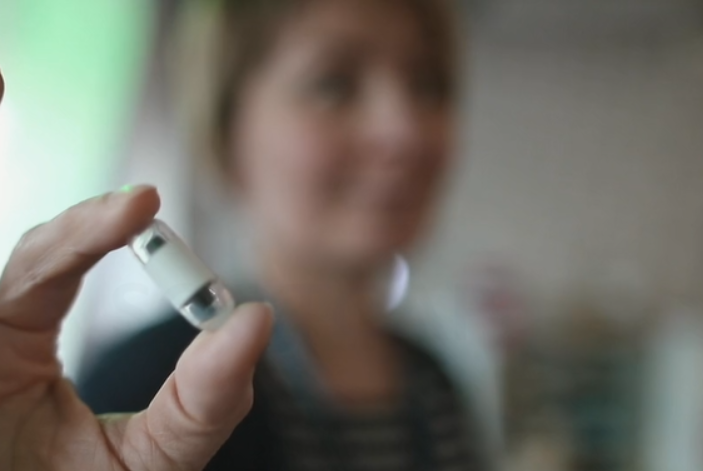Hundreds of island patients with bowel conditions can avoid unpleasant colonoscopy procedures by swallowing a capsule containing two miniature cameras.
The capsule -
NHS Western Isles launches the cutting edge service this month.
In another development, a pilot scheme is underway in Lewis and Harris for the procedure to be carried out at the patients’ home instead of attending hospital or a clinic.
The patient is fitted with a sensor belt and images are sent wirelessly to a data recorder the patient carries over their shoulder like a bag.
After they swallow the capsule they let it run its course for the next six hours or so while going about their daily tasks.
During a visit to Stornoway, Health Secretary Humza Yousaf said he was impressed with the plans.
Mr Yousaf said: “It has been inspiring to hear from the team and learn more about this innovative service.
“This ground-
Western Isles GP, Dr Dave Rigby, explained the new technology means people at highest risk will gain access to colonoscopy quicker, and others will not require colonoscopy at all.”
He said success rates of a feasibility study was good as that for the traditional colonoscopy.
“With appropriate patient selection, most patients will not require any further investigation or intervention. If a significant abnormality is found appropriate, further investigation will be arranged, such as a colonoscopy.”
Patients suitable for the camera procedure will largely avoid the need for an ‘invasive’ colonoscopy and even those that do after their camera examination will often need a very small investigation as the location of any polyps or other abnormalities will be known from the pictures.
NHS Western Isles chief executive, Gordon Jamieson, said: “We are so very proud as a health service to be able to provide this ground-
“For NHS Western Isles there are two ‘First for Scotland’ achievements with the roll out of the service.
“Firstly, patients can be directly referred for the test by their GP. This will streamline the process for the patient and save time for the surgical team as they will not need to see these patients prior to their test.”
He said the home care pilot will avoid the need for travel for patients after they have taken bowel preparation.
This will increase the number of patients suitable for this type of test and they will be able to remain in the comfort of their own home. This pilot will be delivered by the hospital-
“I would like to congratulate and commend the staff involved in planning and establishing this ground-

Island patients to swallow tiny camera pill to check for bowel cancer
14 August 2022